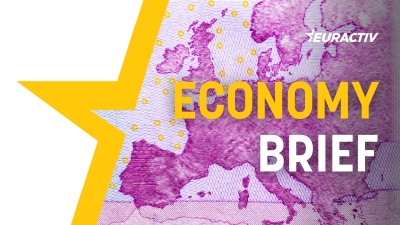Faced with an unprecedented number of digital regulations, Council mulls implementation call

The Council of the EU is preparing a call to implement the plethora of digital regulations passed during the last mandate, and to promote them on the international scene, according to a document seen by Euractiv.
During the 2019-2024 mandate, EU institutions have been particularly active in adopting landmark regulations in the digital realm. Competition, content moderation, data sharing, and artificial intelligence have all had their moment in the spotlight in the Brussels bubble.
The hundreds of pages of new regulations, assigning different responsibilities to multiple agencies, and various implementation and review timelines, are somewhat of a headache to lawyers tasked with making them a reality, both within the regulatory bodies and industry.
The Council hinted at this reality, noting “the significant number of EU legislative acts” and stressed “the need to prioritise in the coming years their effective and efficient implementation,” in the draft document.
This echoes statements made by stakeholders in recent weeks, who stress the importance of actually implementing the maze of regulations in the coming years.
To achieve this aim, the Council calls on the “Commission to carry out a mid-term analysis” of the interplay between sectoral and horizontal legislation in the digital field.
The Council also underlines the importance of cohesion between the Commision and national regulatory agencies in the various newly-established digital governance structures, such that duplicate work can be avoided. It also underscores the importance of working with existing EU bodies such as cybersecurity agency ENISA and telecoms regulator BEREC.
The Council also calls on the executive to reflect on how “to reduce administrative burden for public and private actors, in particular SMEs,” coherently with Italian, German and French pledge by economy and business ministers to cut regulatory red tape.
![Co-rapporteur Brando Benifei after the vote on the AI Act at the E.U. Parliament on March 13. [European Parliament/screenshot]](https://www.euractiv.com/wp-content/uploads/sites/2/2024/03/Screenshot-2024-03-13-at-12.27.16-PM-e1710423055345-800x600.png)
The long and winding road to implement the AI Act
On Wednesday (13 March), the European Parliament passed its first comprehensive regulation on artificial intelligence (AI), but major questions remain on how the law will be implemented.
Addictive design and AI
The document emphasises the importance of implementing the digital antitrust and content moderation rules in order to tackle societal risks, in particular in protecting minors.
The draft conclusions specifically bring up addictive and deceptive designs, showing openess towards one more digital regulation for the next mandate (2024-2029) in this area.
The document adds that “special attention [should be placed] on the well-being of children.” Debates over how to effectively protect children from the risk of digital environments has recently been gaining support in the EU and France.
Although the Council is in parallel working on a call towards the Commission to mull initiatives on how to regulate influencers, no reference is included in this document.
Effective implementation of the AI Act is another priority of the Council, which sees in it a path to foster innovation across the bloc.
The document says that a top priority is to coordinate the brand new AI bodies, both at EU and member states levels.
Telecoms deregulation
On telecom, it seems that the Council will not welcome, but “take note” of the Commission’s 21 February white paper which suggests, among other scenarios, a deregulation of the industry.
The Council aims to invite the Commission to develop a long term vision on this industry, taking into account the report on the functioning of the current telecom regulation (EECC) which is expected by 21 December 2025, the draft conclusions say.
International scope
The Council calls upon the Commission and the High Representative of the bloc’s foreign policy, currently Josep Borrell, and the member states to “ensure a proactive and coordinated approach to develop [an] effective EU policy and action in global digital affairs.”
The Council further emphasises the goal of developing multi-stakeholder governance for the internet with like-minded partners in order to uphold a common position in international institutions.
In addition, the Council welcomes the use of “standardisation as an international scaling platform for innovation in line with EU values.”
Cloud sovereignty
A reference to cloud infrastructure being an “essential aspect of the European digital sovereignty” has been deleted, based the working document seen by Euractiv. This affirms the trend of lost momentum for sovereign requirements in the cloud industry.
A reference to “digital sovereignty in an open manner” however has been introduced.
Next steps
The document will be discussed in the relevant Council working party on 16 April, the draft says.
The final conclusions are expected to be submitted to the Committee of permanent representatives (Coreper) on 8 May, before final adoption by EU Telecom Ministers during their planned Council meeting on 21 May.
[Edited by Rajnish Singh / Elisa Gkritsi]
Read more with Euractiv




